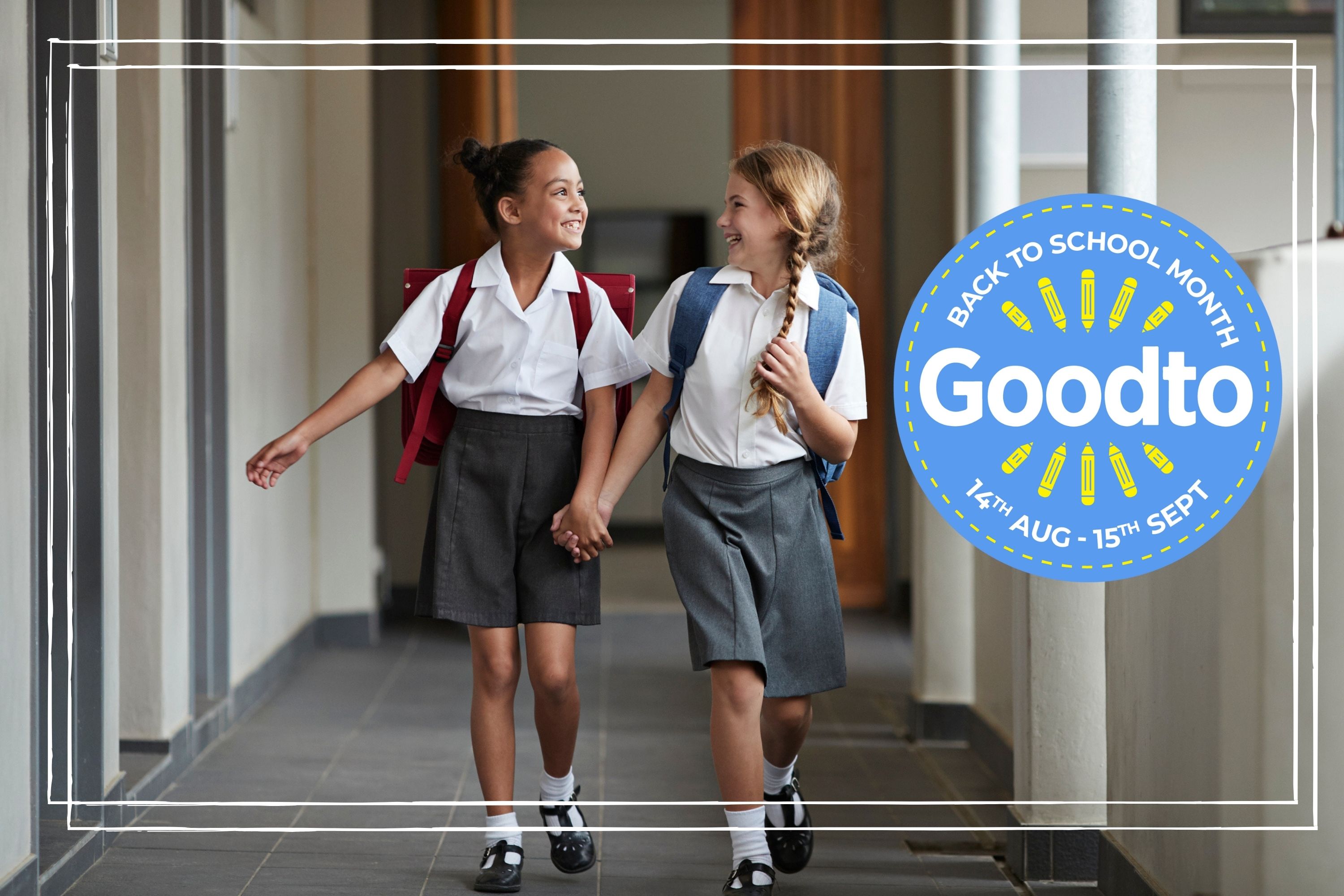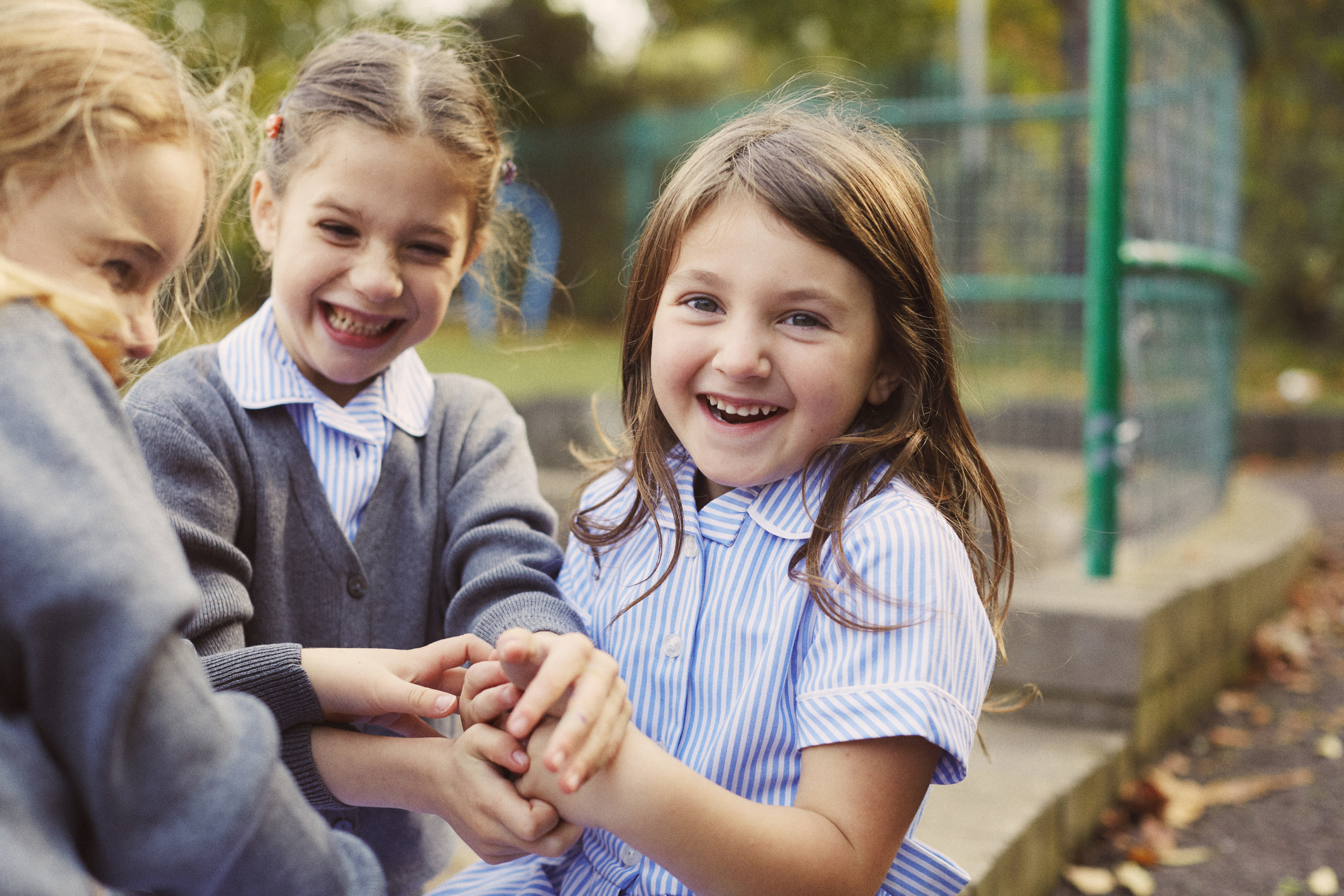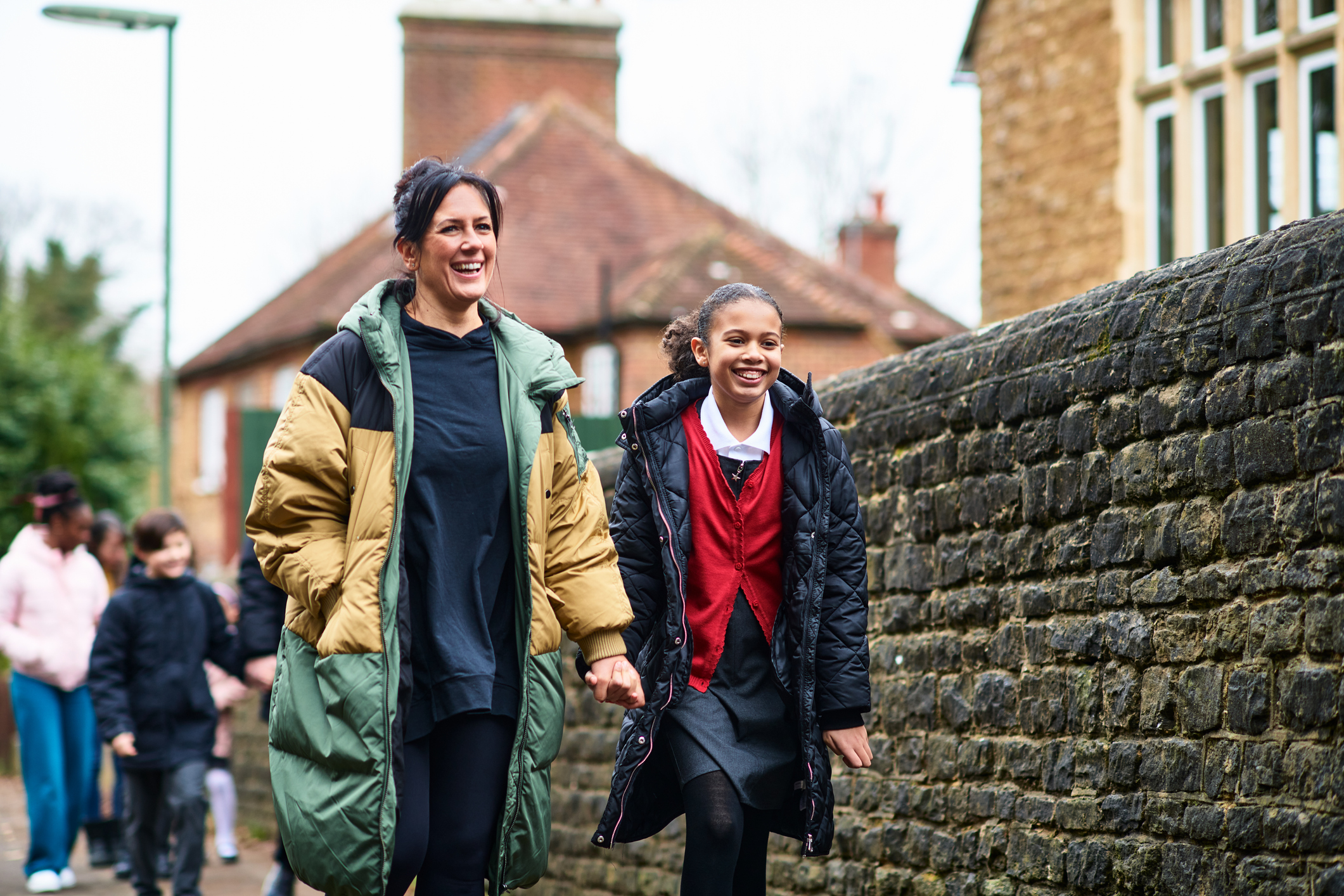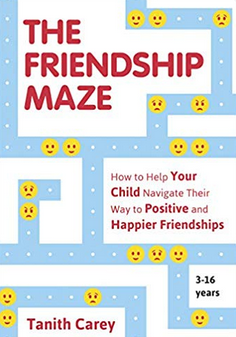12 expert tips for happy school friendships - for parents as well as kids
How to help your child have happier, healthier friendships at school this year


Worried about how your child will handle friendships at school this year? Goodto asked parenting author Tanith Carey to share her top tips for helping kids have happier relationships in the playground and beyond.
You've done all you can to prepare your child for the new school term, from forking out for the best school shoes and packing their bag with the best back-to-school supplies but now they're on their own. The playground calls.
And as a new school term starts, it’s not just how well our children will do in the classroom that worries parents. It's also how well their friendships will go in the year ahead. That’s because we all know how inconsolable kids are when they get left out, have no one to sit with at lunch or have a falling-out with their mates.
Happy school friendships don't just happen
Traditionally, parents have been led to believe children should just magically ‘know’ how to handle friendship flare-ups and there’s nothing we can do from the other side of the school gates.
But as the author of The Friendship Maze: How to help your child navigate their way to positive and happier friendships - the first UK book to look at the social science of kids' relationships - I've discovered a range of ways to help children have a smoother ride socially in the coming year too.
These are my top tips...
1. If your child needs practice getting to know new kids
Eat together...
Gathering around a table to eat is about much more than simply sharing a meal. Experts who analysed the eating habits of more than 24,000 children, aged six to eleven, found they had better social skills if they regularly sat around the table with their families. The experience gives them the chance to practise building blocks of friendship, like taking turns, listening, sharing ideas, and expanding conversation. It can be any meal, so make these occasions as regular as you can.
Parenting advice, hot topics, best buys and family finance tips delivered straight to your inbox.
2. If your child often has quarrels
Train your child how to view the world from other people’s perspectives...
This ability is an essential component of friendship that enables key skills like compromise, listening and sharing. Get your child into the habit of stepping into other people’s shoes in everyday life, whether it’s imagining how a film or story book character would feel – or asking them to imagine how someone they know feels in a challenging situation they are facing.
3. If your child sometimes has nobody to play with
Show them how to join in...
We all fear our kids being left out at break time. But with a little help, they can spot the signals and learn how to be invited in. Social scientists have found that rather than saying: ‘Can I come into your game?’, it works better for a child to show quiet but friendly interest in the game that’s going on.
Help kids think of ways to contribute by coming up with a new role in a 'Let's Pretend' game - or offering a new skill if others are playing a sport. Make it clear that not all their attempts will work and not to feel personally rejected.

4. If your child is a ‘bad loser'
Teach them to be 'good sports'...
One reason children get rejected is that kids dislike peers who cheat in games, argue about rules, throw strops when they lose, or brag when they win. If your child has these tendencies, work with them. Play turn-taking games at home and role model how to have fun without getting hung up on the result. Explain how winning and losing is temporary. Go to YouTube and find examples of sporting role models losing with good grace.
5. If your child sometimes gets excluded by their mates
Give kids social outlets outside school...
Offer your child alternative activities and playdates outside school so classroom friendships are not the be-all-and-end-all. It means if your child has a social hiccup with schoolmates - which they inevitably will as part of 'normal social conflict', they still have the comfort and security of having other friends who are not involved.
6. If your child is a show-off
Talk about connection...
Children may show off and brag in the belief that if they impress others, they will like them more. In fact, children resent others who act superior. To help them connect with other children, talk about how it helps to look for what they have in common with others, and talk about that, rather than focus on what makes them better than others. For the start of the term, practicing with them how to ask friendly questions will help them find areas they have in common with others.
7. If your child is hyper-competitive
Suggest your tween compete for their personal best...
At neutral times, you could suggest there is only one person in life who is truly worth beating, and that’s themselves. If they see how far they have come, they will also see how far they can go. Make it clear that for others to succeed, others don’t have to fail.
And what about the grown-ups?

We all know that kids' friendships can be complicated. But we don’t often talk about how complex the relationships between parents can be too. Why else would we feel nervous about having no one to talk to in the line at pick-up time?
As the author of 'The Friendship Maze’, as well as mum of two grown-up kids myself, I know these bonds with other parents are critically important, so there’s a friendlier, warmer atmosphere for both us and our kids. So what are the best ways to get on well with the other grown-ups?
8. Be open to everyone
Be prepared to be friendly to every parent in your child’s class, not just the ones you feel you have more in common with. By role-modelling this for your child, you will be passing on one of the most important life lessons there is: that everyone is deserving of basic courtesy and dignity. Being that parent who ‘smiles’ and says ‘Good Morning’ will set you apart and go a long way.
9. Dodge the cliques
One of the main reasons for tension at the school gates is that cliques don’t only form in the playground - they happen among parents too. These are often headed by Queen Bee (mums) or King Pin (dads) and their sidekicks, who often only invite the kids of other parents in their circle for playdates. This narrows your child’s social life and leaves other parents feeling left out, often souring the atmosphere. Instead, be proud to be a ‘floater’; a parent who stays out of the school-gate politics, is friendly to everyone, and offers your child playdates with a wide choice of peers.
10. Check your competitive urges
We all want our kids to do well. But when we start measuring their achievements against others, it wrecks relationships with other parents. That’s because competitive power plays put others on their guard and make playground conversations feel more like stressful duels, than enjoyable chats.
So, if you feel the urge to point out the fact your child is already racing ahead with their 12 times table when you know full well the rest of the class is still on their fours? Save it for the grandparents - who will be just as pleased as you - not the other parents who will resent your one-up-man-ship.

11. Emphasise what’s best for the kids
If another parent makes a competitive power-play against YOU, side-step it by drawing attention to the goals you and another parent BOTH have in common, whether it’s for all the kids in the class to get better at numeracy, whatever their level or them all to put in a lovely performance in the school play or sports match.
12. Avoid going into battle on their behalf
Many schools gate relationships rupture when parents go into battle - or start ignoring each other - because their kids have fallen out. But always remember you’re only hearing one side of the story from your child. Rather than get involved, which will only spark defensive behaviour from the other parent, it’s better to train your child with the skills they need to handle friendship issues themselves.
As I mentioned, ALL kids have a certain amount of normal ‘social conflict’. It’s part of their development. So, unless your child is being repeatedly targeted by a more socially powerful child who is deliberately trying to cause ongoing hurt, it’s better to allow them to develop skills of conflict resolution for themselves. The chances are your kids will be talking again soon. Parent fallouts are often far more difficult to repair.
To find out more about how to help your child enjoy the school year ahead go to The Friendship Maze: How to help your child navigate their way to positive, happier friendships, published by Summersdale.
You'll find lots more back-to-school content in our Back to School Month hub - don't miss Teachers reveal the best ways to get your children back-to-school ready – and why you should never pack their bags for them and check out Confessions from parents about what they’re most looking forward to once the kids go back to school.

Tanith Carey is a journalist and parenting expert. The author of 11 books, she is a former US correspondent for the Daily Mirror and a former London Press Club Consumer Journalist of the Year. Her work covers the topics of parenting, childhood, teenagers, child psychology, veganism, social trends, health, relationships, and psychosexual development.